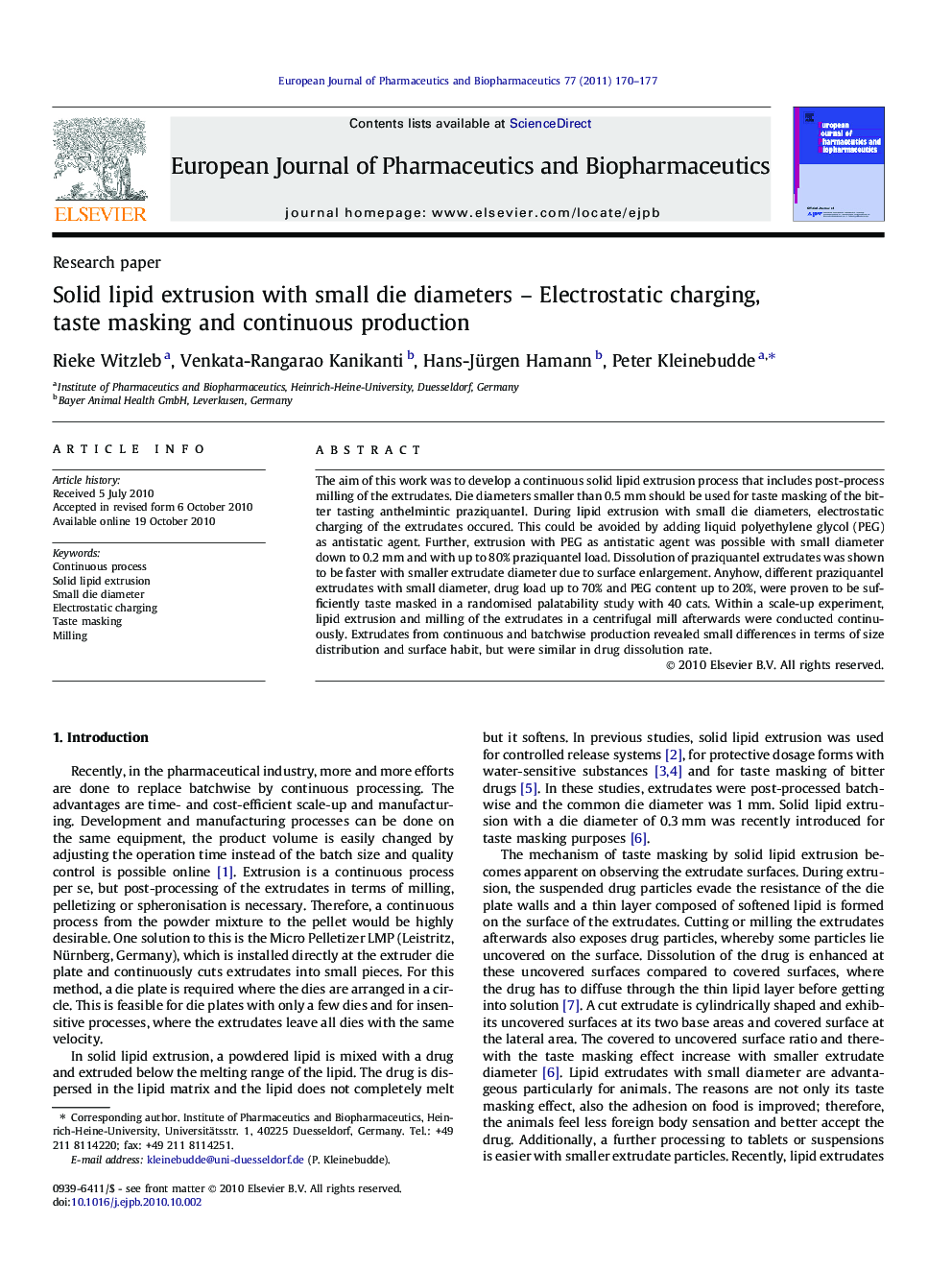| Article ID | Journal | Published Year | Pages | File Type |
|---|---|---|---|---|
| 2084227 | European Journal of Pharmaceutics and Biopharmaceutics | 2011 | 8 Pages |
The aim of this work was to develop a continuous solid lipid extrusion process that includes post-process milling of the extrudates. Die diameters smaller than 0.5 mm should be used for taste masking of the bitter tasting anthelmintic praziquantel. During lipid extrusion with small die diameters, electrostatic charging of the extrudates occured. This could be avoided by adding liquid polyethylene glycol (PEG) as antistatic agent. Further, extrusion with PEG as antistatic agent was possible with small diameter down to 0.2 mm and with up to 80% praziquantel load. Dissolution of praziquantel extrudates was shown to be faster with smaller extrudate diameter due to surface enlargement. Anyhow, different praziquantel extrudates with small diameter, drug load up to 70% and PEG content up to 20%, were proven to be sufficiently taste masked in a randomised palatability study with 40 cats. Within a scale-up experiment, lipid extrusion and milling of the extrudates in a centrifugal mill afterwards were conducted continuously. Extrudates from continuous and batchwise production revealed small differences in terms of size distribution and surface habit, but were similar in drug dissolution rate.
Graphical abstractA continuous solid lipid extrusion process from powder mixture to post-processed lipid pellets was established. For the first time lipid extrudates with a diameter of 0.2 mm were produced. Furthermore, electrostatic phenomena during solid lipid extrusion were investigated and a taste masked formulation with the bitter tasting drug praziquantel was developed.Figure optionsDownload full-size imageDownload as PowerPoint slide
